
Whether you’re a farming novice or a plant expert, you can start farming in the Greenery™ in no time.
With Freight Farms’ intuitive technology, the ability to successfully grow and sell hyper-locally grown produce at a commercial scale has never been easier. Use the power of the Greenery — the most advanced container farm on the market — to build a thriving farming business that lets you feed your community fresh food anytime, anywhere.
Simply follow our tried-and-true steps to get started.
Step 1 -
Craft a Powerful Business Plan
Every great business starts with a smart business plan. Understanding the market and crafting a vision for your business will help you pinpoint the customers to target and which plants to grow.
( A ) Know your market
Think you’d like to start farming in your community? Start with market research: Who are your potential customers? What are their needs? What are the average prices for greens in your area? These questions will guide you in the right business direction.
-
Over the years, we’ve learned a lot about which markets are most responsive to the Freight Farms mission. We share our knowledge with you in our customer guide
( B ) Decide what to grow
Once you’ve determined your customer base, it’s time to decide what you will grow. Whether you focus on a single crop, or choose to grow a diverse variety, you’ll be bringing your customers incredible quality.
-
We've successfully grown over 500 varieties of lettuces, leafy greens, herbs, roots, and flowers.
Get the full list: Crop Guide Download
( C ) Write your business plan
You’ve done the research, now put it on paper! By organizing your plan in a comprehensive document, you can approach financiers, potential customers, and local government officials with confidence.
-
Use our guide to impress everyone with a professional business plan and lender pitch deck.
Download our Business Presentation Template to get started.
-
Learn how you can use in-person and digital marketing to attract customers, create partnerships, and engage the community. Read our marketing how-to
Step 2 -
Secure Financing
From building an airtight business plan, to securing a loan, to co-writing a grant submission, our experienced business development team will guide you to find your funds.
Loans
Several farmers get loans to finance their farming projects. We encourage new farmers to go to their local bank when applying for a loan. Freight Farms has also partnered with Farm Credit to provide farmers favorable equipment financing.
Grants
Many small business owners are eligible for government grants to promote innovation in agriculture, inclusion of women in business, and economic development. Explore your grant options through FarmRaise.
More Financing
Options
There are several ways to find financing based on your specific circumstances. Check out all the options, including small business loans, equipment financing, USDA loans, and more!
Step 3 - Prepare Your Site
We assist you in navigating local zoning laws to secure site approval from the government. From there, you’ll be farm-ready with just a few site modifications.
Choose a location
The Greenery is compact, climate controlled, and easy to transport by truck or boat. That makes it compatible with any location that has access to water and electricity, including vacant lots, rooftops, and even indoor spaces.
-
Whether you're located in the middle of the desert or on the top of a snowy mountain, your Greenery is built to succeed. Read all about how your farm is able to thrive in harsh climate conditions
-
Who should I talk to? What should I say? What documents do I need to provide? These are all questions we answer in our 6 tips to navigate the zoning process
Make it farm-ready
Find a site you like? Get it ready for the farm to arrive with our comprehensive Site, Supplies, Delivery, and Placement Guide.
-
Step 1: Make your site farm ready get inspired
Step 2: Work with Freight Farms to organize your site, supplies, and delivery logistics. Download the comprehensive guide.
Step 4 -
Get Trained
Our comprehensive training programs prepare you to start farming the moment your Greenery arrives. With options for every learning type, our Client Services team will guide you through the entire training process.
In-Person Training
Farm Camp is the in-person training program that sets Freight Farms apart. Over the course of one or two days, new farmers will learn everything they need to successfully operate their farm.
Online Training
Farmhand Academy is a comprehensive, 120+ lesson course separated into 10 distinct learning paths designed to get you fully trained from the comfort of home.
Resource Center
From helpful booklets and guides, free tools and templates, to short video clips designed to help you better run your container farm from start to harvest.
They did it - so can you
We know our farmers are your best resources, so we make it our job to document their journeys with webinars, spotlights, and Q&As.

One Platform, Countless Applications
Freight Farms makes you an instant farming expert. All that’s left to do is apply the technology to your unique venture.
Business Models
Provide restaurants and bars with artisanal produce and hard-to-find herbs.
Since implementing a Freight Farm, Ferncreek Farms has been able to consistently provide exceptional products to restaurants and bars year-round. This reliability has not only secured repeat business from chefs but also justified premium pricing for her offerings.
Bring the highest quality greens to the farmers market.
Bees Greens Co. is bringing fresh back to Hawaii, a market mostly dependent on imported perishable goods. With the best tasting greens around, Bees Greens has grown a dedicated fan base.
Supply grocery stores fresh produce year-round.
HerbanLeaf Farms is a family-owned business growing local in the arid Cyprus climate. They educate their customers on hydroponics and the value of eating local while growing the best kale around.
Case Studies
Blog
Get in touch
Our experienced team is your best resource! Contact them to get personalized advice and assistance as you work on your business plan, site, and financing.












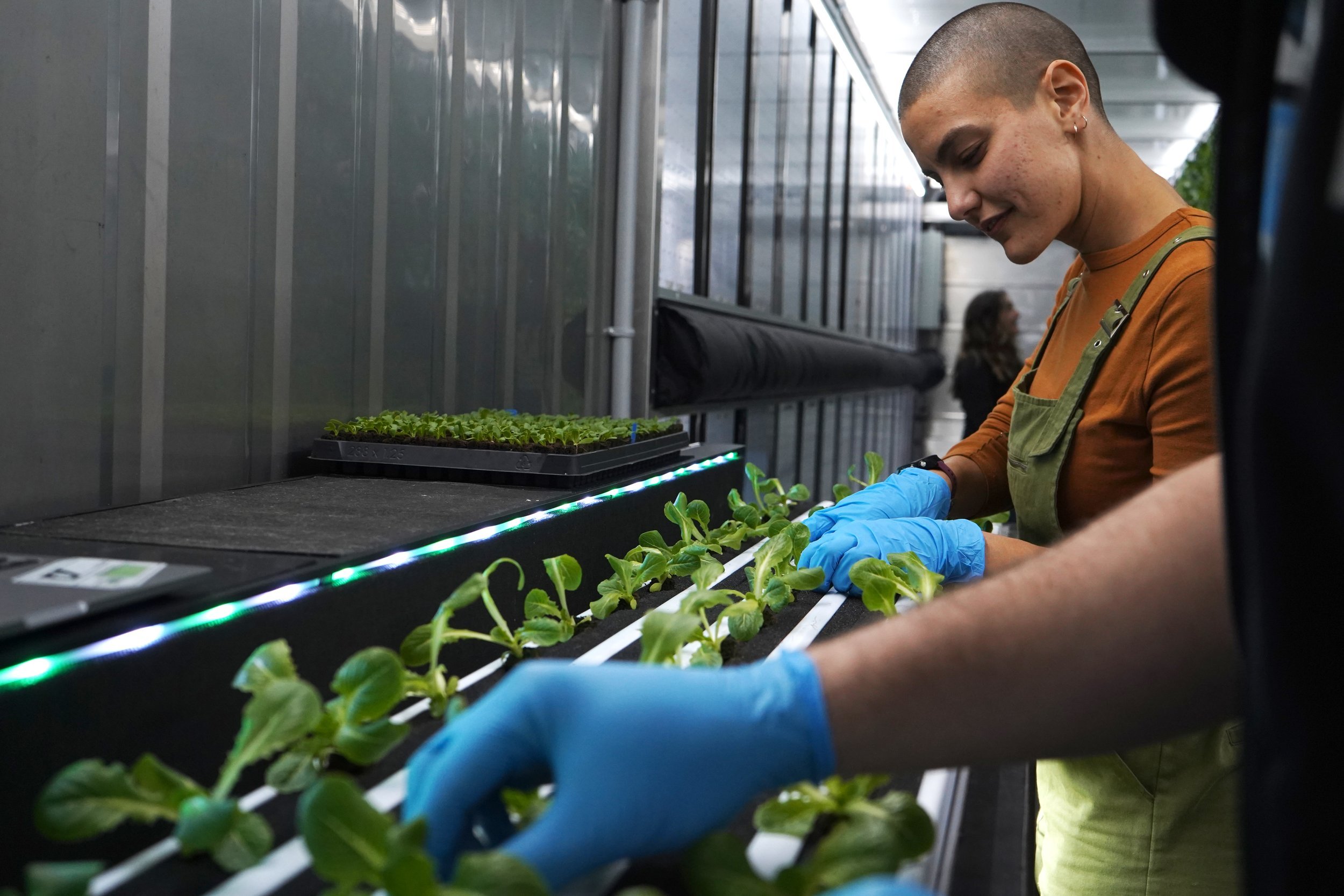

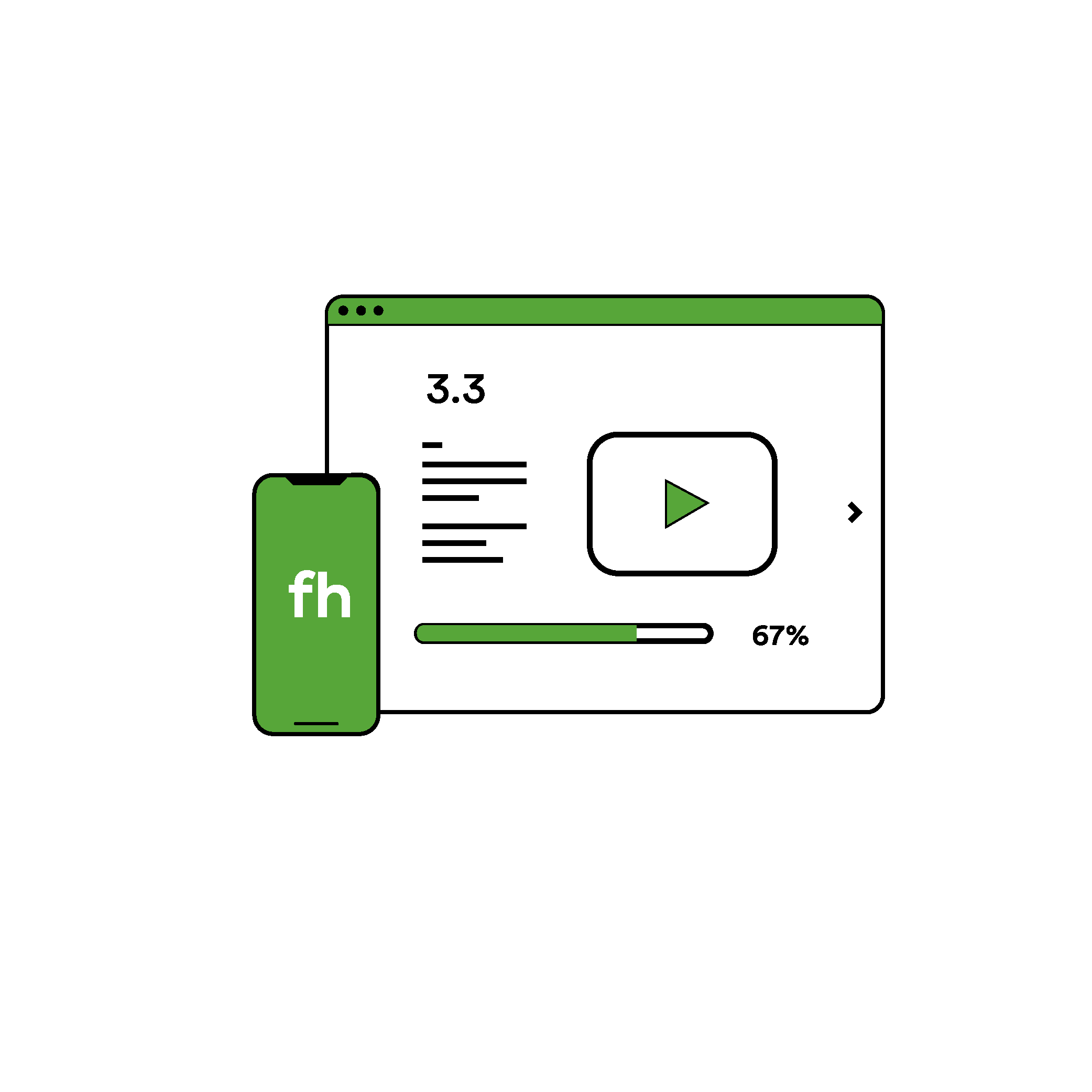



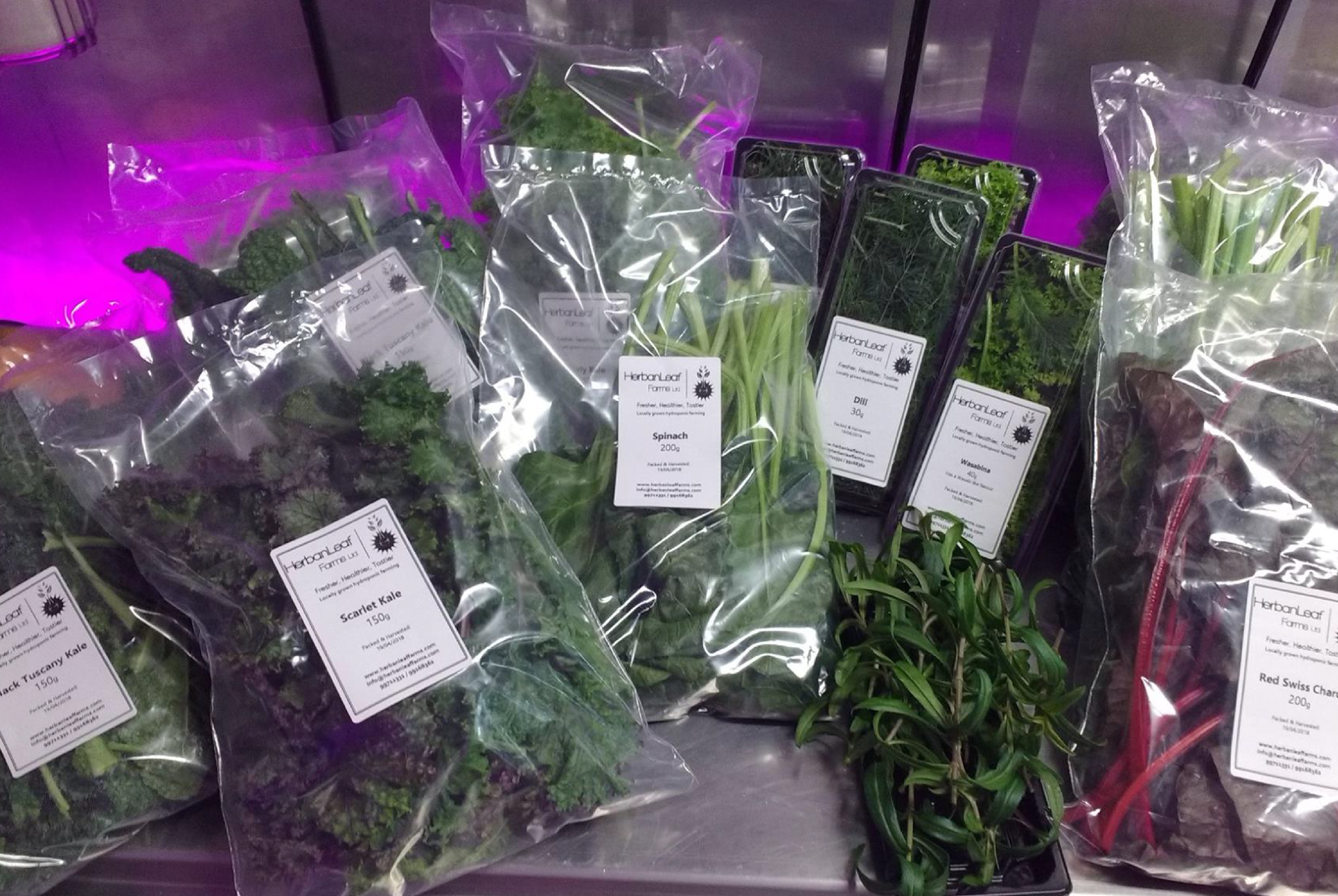
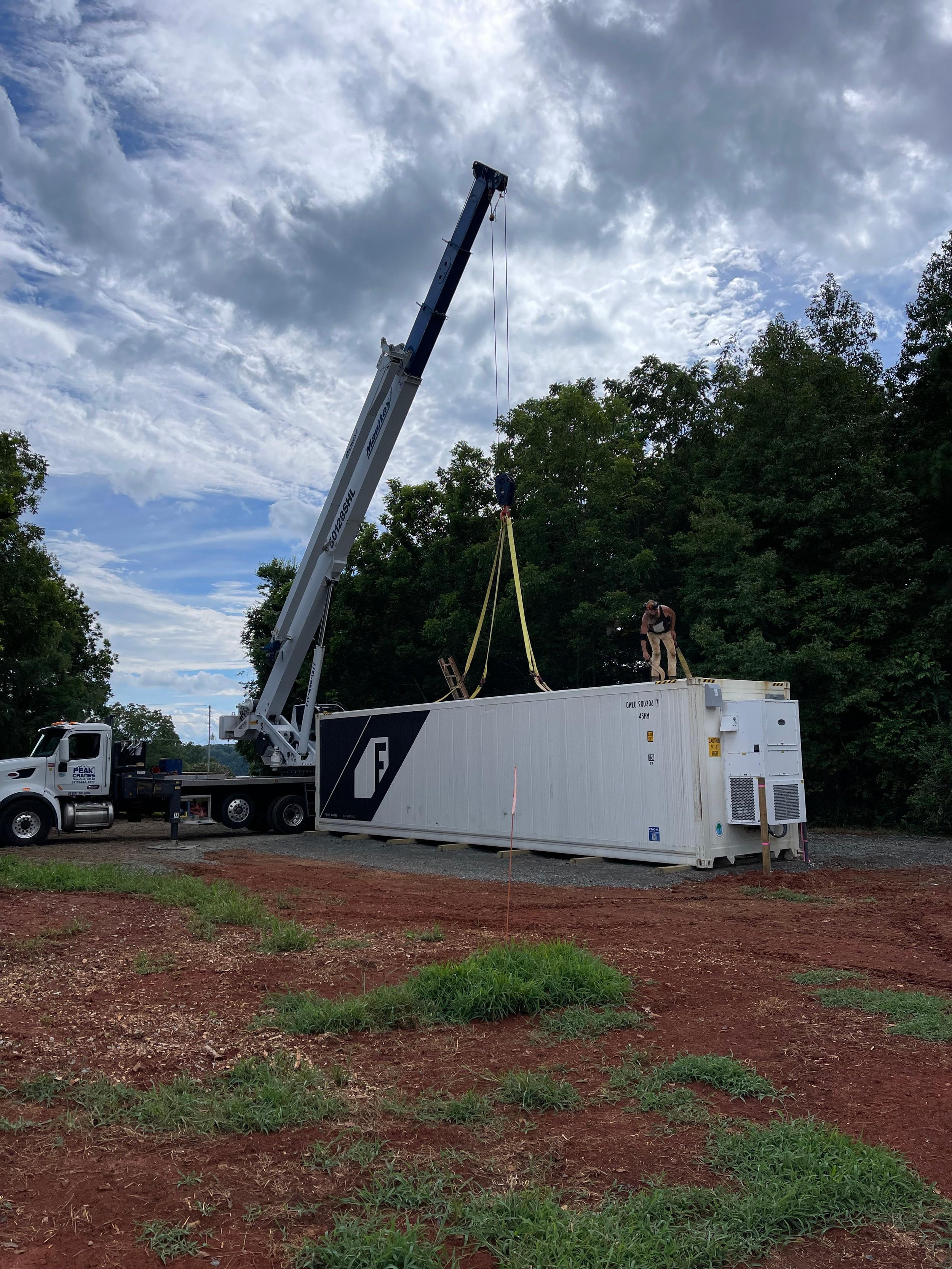
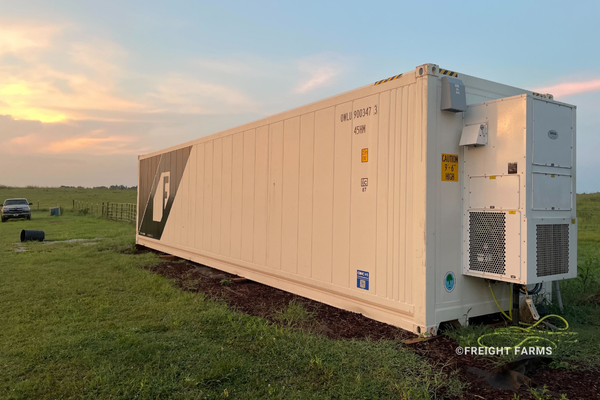
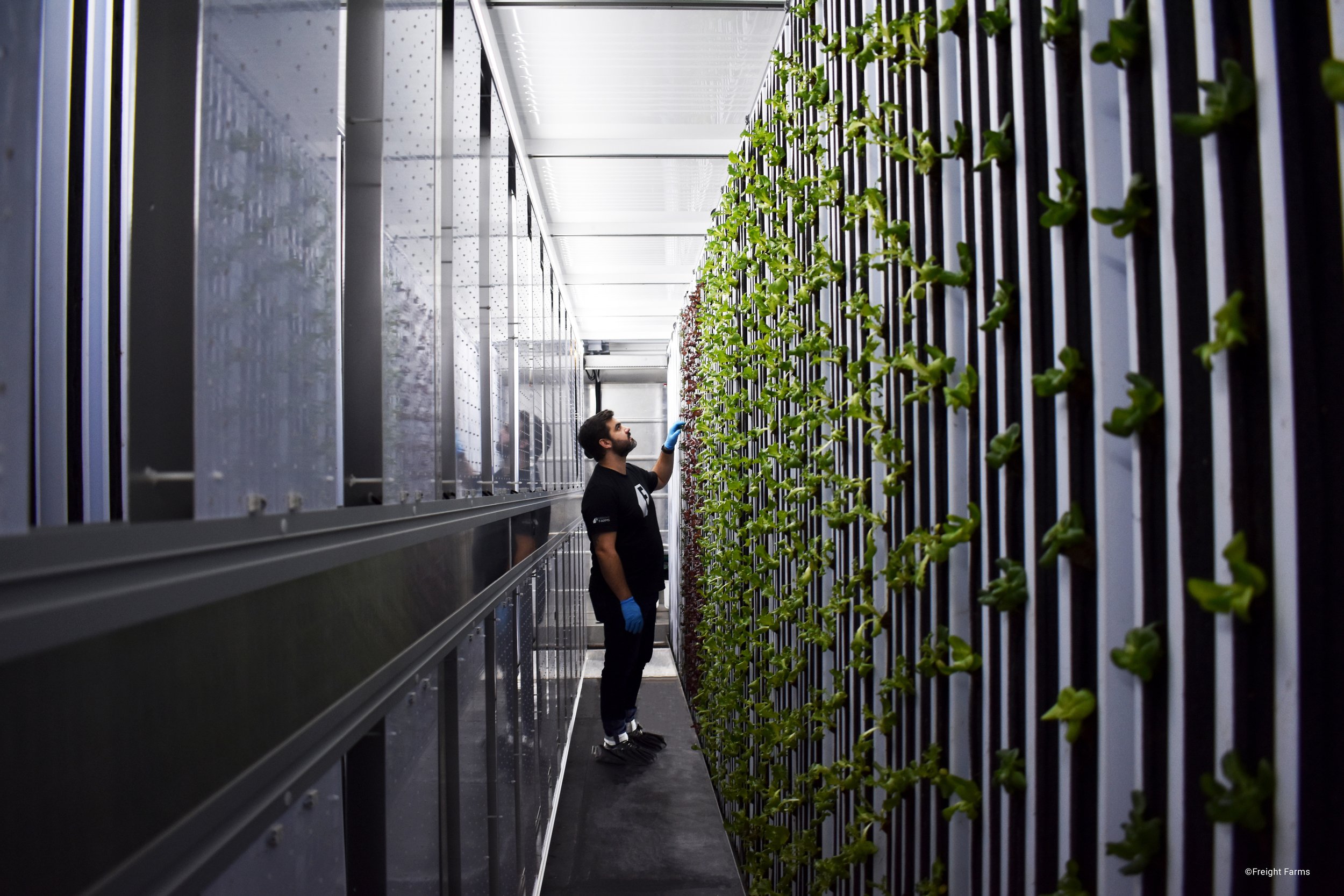







Malnutrition impacts up to half of hospital patients, but a new solution is taking root—container farming. By growing nutrient-rich produce directly on hospital campuses, healthcare providers can serve fresher food, reduce waste, and improve patient recovery. Hospitals like AdventHealth Celebration have seen over 200% salad bar revenue growth and major sustainability gains. Discover how this “Food as Medicine” approach is transforming patient care and hospital operations.